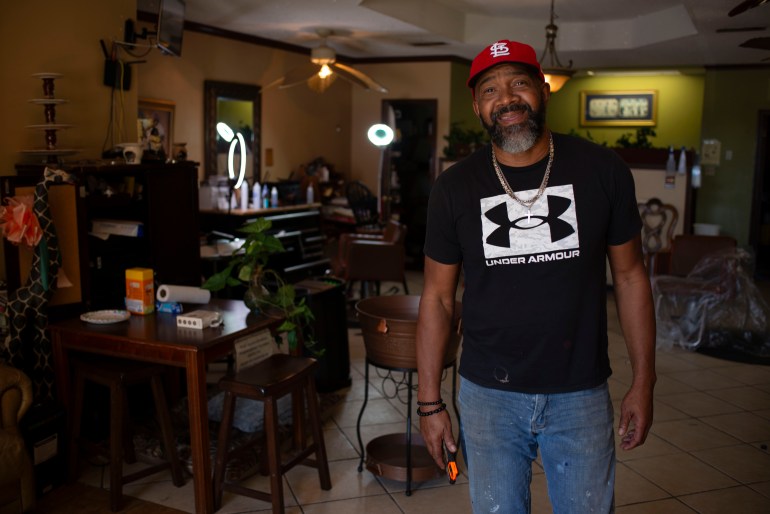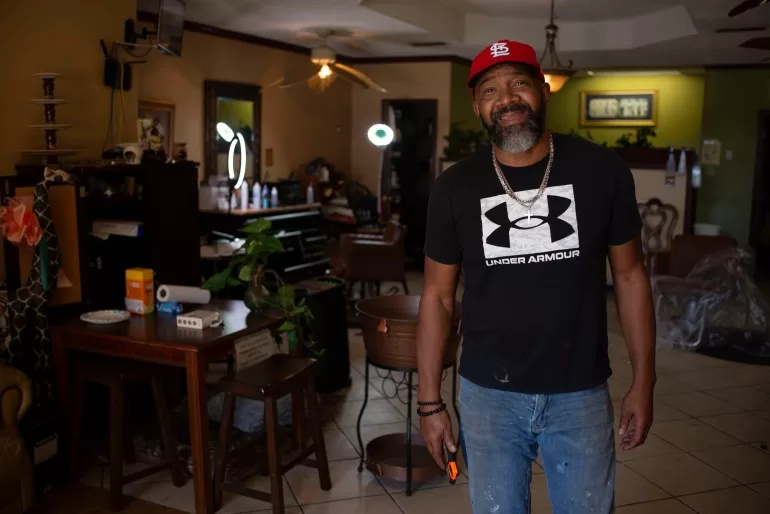But Peach County — named for the Elberta peach, a variety developed in the area — represents a unique microcosm in Georgia.
It is split nearly evenly between Black and white residents, at about 44 percent apiece, according to 2022 census data.
Anna Holloway, a former professor and dean at Fort Valley State University, wrote a book about moving to the area from the US Midwest in 1968, two years before schools in the county desegregated. She married a Black man there.
But even in the decades afterwards, schools continued to hold segregated events, including separate prom dances. Only in 1990 were the students of Peach County High School allowed to dance together at the same event. Holloway’s son was among the first high schoolers to participate in the years that followed.
Though racial divides seem to have eased, the political divide remains entrenched, Holloway explained.
“I would say things are much calmer, and people get along much better,” she said. “But there’s still a political split. There may be some undecided voters, but they ain’t talking.”
Speaking from his salon on the main stretch of Fort Valley — a street marked by mostly dormant storefronts — 65-year-old Garrett Milton said there has been a strong tradition of passing down political views across the generations.
“A lot of times when people vote, they vote because of their parents voted,” he said. “It’s the same with cars. My dad drove a Chevrolet. I drive Chevrolets.”
Studies have shown that political views often fall along demographic lines — and have for generations. In April, the Pew Research Center found that 56 percent of non-Hispanic white voters identified with the Republican Party, continuing a decades-long trend towards the right.
Black voters, meanwhile, tend to vote overwhelmingly for Democrats, another longstanding trend that dates back to the 1960s. According to Pew, 83 percent of Black voters signalled their preference for the left-leaning party, compared with 12 percent who tilted Republican.
Still, with a tight race unfolding between Harris and Trump, the outcome is anyone’s guess. Milton sees the economy as being one of the deciding factors.

Fort Valley, once bustling, has seen the disappearance of what he called “anchor stores” that drive foot traffic downtown, Milton said. Small businesses like his that rely on regular customers can survive, but others suffer.
But Milton added that Harris’s history-making run could generate a level of local enthusiasm not seen since Barack Obama, the first Black president of the US, who won in both 2008 and 2012.
Harris herself would be the first woman and the first person of Black and South Asian descent to win the White House if elected.
“I’m hearing more people saying they’re voting more than ever, and I’ve been here 43 years,” Milton said. “But I’m seeing more Trump signs then I’ve ever seen. They pop up everywhere now.”
